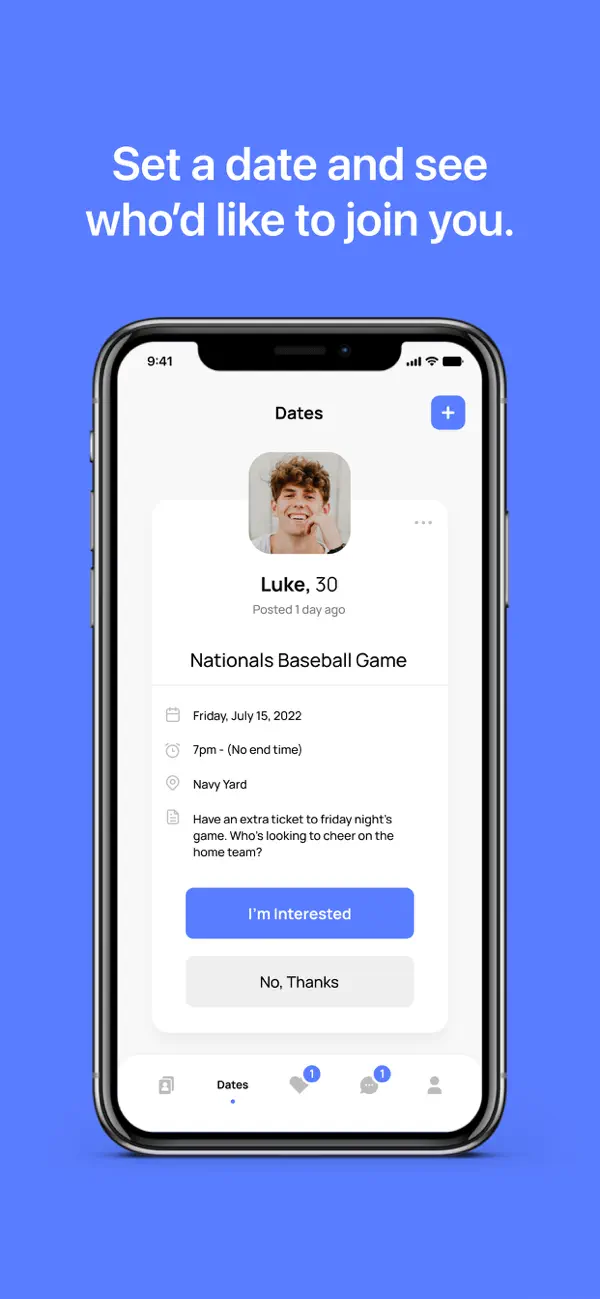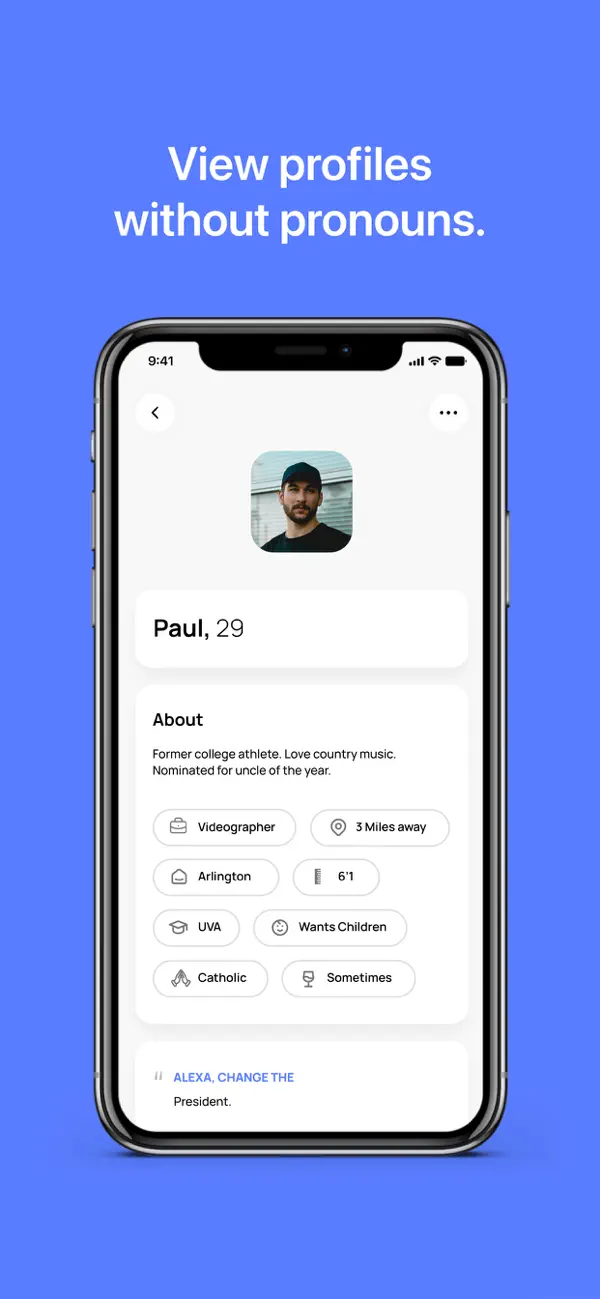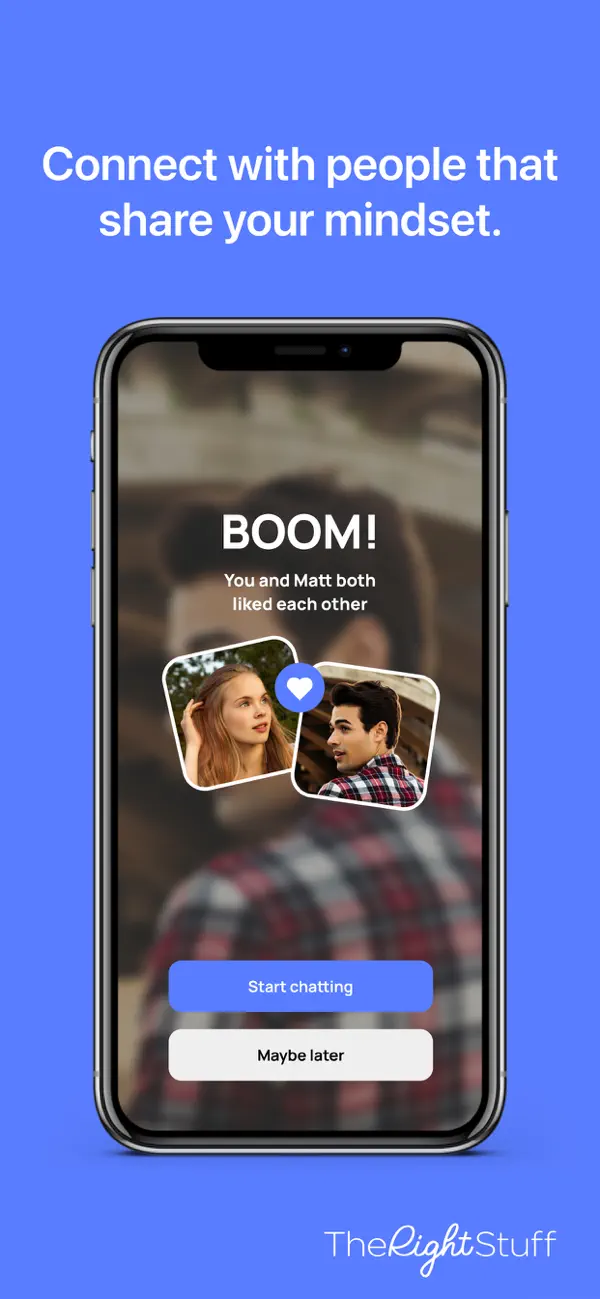Instead of building atop a "heap of broken images," conservatives should restore the full portrait of the human experience.
Editor's Note: The following article was written by Micah Paul Veillon for The American Conservative. The Liberty Jacket edited the text and added media to conform with this publication's style. The original article can be read here.

What are the roots that clutch, what branches grow
Out of this stony rubbish? Son of man,
You cannot say, or guess, for you know only
A heap of broken images, where the sun beats,
And the dead tree gives no shelter, the cricket no relief…
"The Waste Land," T.S. Eliot
In "The Waste Land," T.S. Eliot reflects on the disillusionment of the post-war world. While the poem was penned in 1922, many developments since have only exacerbated the problems Eliot addressed—a changing world where things no longer seemed to have any fixed meaning, “a heap of broken images.”
One such development is the advent of dating apps. Dating apps are supposed to inaugurate physical dates, but at least on popular apps like Tinder, this isn’t happening. A recent study, for example, found that only 50 percent of Tinder users have been on a single date with someone they met on the app. The same study also revealed that less than a quarter of Tinder users are actually looking for a long-term relationship. With the "swipe" feature and the resulting hook-ups, dating apps turn romance into a market commodity, where the sole good is the fulfillment of the self.
Newer apps are trying to create a more humane experience. Upon hearing about a conservative dating app at a Buckley Breakfast a few months ago, I reached out to CEO John McEntee. The app is called The Right Stuff. It was developed in partnership with Vibgyor Web USA, designed by Naked Development, and backed by investments from Peter Thiel.
iPhone Screenshots for 'The Right Stuff' on the Apple App Store
The app is exclusively for conservative singles and operates on an invite-only basis. Accepted members are given two invitations to distribute to fellow conservatives. The app launched in October and added new features to the dating-app experience. For instance, it allows users to post on the platform, meaning that if someone were going to a concert, a Braves game, or even a political event, they could post the event on the app. Interested users could "like" the post, allowing the user who posted the event to choose a date to tag along.
Another interesting feature: women do not have to pay. While the app is free, there is a premium version of the service that women will not have to pay for. Other than this, however, when The Right Stuff describes itself as a "conservative dating app," it means to say that it is a dating app for conservatives.

Existing dating apps have certainly taken a more overt liberal turn in recent years. In 2020, for example, the app Bumble required users to sign a statement pledging support for Black Lives Matter. McEntee sees The Right Stuff as an example of the "build your own" model—if the liberal establishment has a hold on an industry, use the market to build a conservative alternative.
The Right Stuff will be most popular in large cities where conservatives are a minority. For any conservative looking for a dating app, The Right Stuff will be a valuable alternative.
However, I must say that I have reservations about the app. I don’t doubt whether the app will be successful, but I fear it will have the same anti-social effects as other dating apps. Since these problems inhere in the very nature of dating apps, they are not problems that The Right Stuff, or any other dating app, can solve.
I share Eliot’s perspective that modernism is an empty worldview. Social apps, in general, are predicated on a sense of radical autonomy, which finds its roots in modernist ideology. The question for conservatives, then, becomes whether it is worth seeking to "build our own" alternatives to inherently liberal corporations. It seems to me that doing so is only continuing to build on the "heap of broken images" identified by Eliot.
Dating apps place all power in the hands of individuals, giving them complete control over their encounters. The accountability associated with standing face-to-face with another person is lost.
In his brilliant essay "Hiding Behind the Screen," Sir Roger Scruton explores the effects of social media on our social interactions. For one, Scruton observes the user controls the entire experience. At any moment in his encounter with another, he can get off the app, never to respond again. The user never has to face uncomfortable situations he does not desire to encounter—he can always block, mute, or "swipe left" on those people or ideas in which he is not interested. As Scruton says, the other may be free in his space, but he is not free in yours since he is entirely dependent on whether or not you prefer to keep him there.
This robs us of true freedom. As Scruton says, freedom "is a process that requires real conflicts and real resolutions, in a shared public space where we are each accountable for what we are and do." His argument can easily be extended to dating apps.
Though dating apps are supposedly designed to encourage in-person dates, they ultimately encourage hiding behind the screen in perhaps the most important part of the romantic experience: the first encounter.
When you walk into a room and see an attractive person, and you wish to get to know her, you cannot retreat. There can be no "hiding behind the screen." All of one’s nerves must be faced and dealt with. There is something exciting about this. It is deeply human, and the fact that dating apps don’t allow for it suggests we are moving away from an authentic human experience.
If John Keats first encountered Fanny Brawne in the form of a pixelated image, swiping mindlessly on his iPhone, would he have written to her, "If you should ever feel for Man at the first sight what I did for you, I am lost"? Color me skeptical.
Another feature of dating that is lost with the apps: risk. Normally, if you wish to further a relationship, you must face the possibility of rejection in the here and now; you have to risk terribly messing things up. This person may linger on your every thought until the next encounter when you work up the nerve to ask her out. If you like, she is challenging your very autonomy. As Keats wrote in "Lines to Fanny":
What can I do to drive away
Remembrance from my eyes? for they have seen,
Ay, an hour ago, my brilliant Queen!
Touch has a memory. O say, love, say,
What can I do to kill it and be free
In my old liberty?
With a real first encounter, you confront true beauty in the human person. You stay awake the night after, remembering all of the subtleties—smile, eyes, and laugh. Keats, again, writing of Fanny:
To-night, if I may guess, thy beauty wears
A smile of much delight,
As brilliant and as bright,
As when with ravish’d, aching, vassal eyes,
Lost in soft amaze,
I gaze, I gaze!
These little but important things help us overcome the nerves, fear, and anguish associated with actually asking someone out. They help us become free, making us face life’s conflicts head-on. For this, the first encounter with the other, especially in romantic attraction, is so beautifully mystical. It can be terrifying because beauty judges us—but also saves us.
While dating apps have surely worked for people, they have also robbed us of something valuable. In doing so, they have rendered us less responsible in the face of the other.
Perhaps this is why only half of Tinder users have been on one single date. The dating app undercuts its purpose in its very nature—calling us to retreat behind the screen, then daring us to venture out beyond it.
I think John McEntee and his team at The Right Stuff are trying to offer conservatives something valuable. But I also think we should stop trying to build atop a "heap of broken images," seeking instead to restore the full portrait of the human experience. My view may fall in the minority, but these advancements make us less, not more, free. In a world of limitless romantic options beckoning with every vibration in our pockets, we are getting married less, divorced more, having fewer kids, and are far more depressed. Scruton considers this an evil:
It may be an unavoidable evil; but it is an evil all the same, and one we should strive to abolish if we can.
//
Micah Paul Veillon
Did I make an impression? Did I leave anything out? Voice your opinion by sending a letter to the editor or submitting a counter-point as an article on our Contact page! I look forward to hearing what you have to say. Let's make political discourse civil again.
Should conservatives use a 'conservative' dating app or seek natural romantic encounters?
Conservatives should have a dating app
Conservatives should seek natural romantic encounters.







